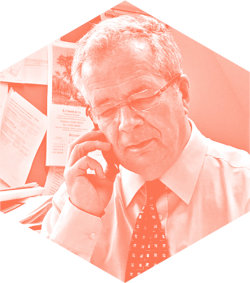In the decades I’ve spent doing construction business development and sales, one of the most valuable lessons I’ve learned is this: work with the estimators.
‘I bring the job in, they price it’, you might be thinking – ‘on to the next one.’ But not so fast! The best sales agents know that marketing never stops. There are at least four good reasons to work closely with the estimator and reel that tender in together.
First, effective business development moves at the right speed. It’s obvious really, but you need to know how many tenders can be handled at any one time. That’s all the more important for part-time team members who might be in for a few days a month. Managing the tender stream is part of the job – keeping an eye on the types of contract coming in, their potential value, and ensuring that they arrive at the right pace. You don’t want to find yourself in a position where there’s a backlog on the estimator’s desk and you have to decline a tender. Every marketer has to do it occasionally, but it goes against all our instincts to turn away a potential opportunity.
Second, good business developers scope out every incoming job and provide detail. At CMS we provide a full report of what is expected in the next week, so that directors and estimators can allocate resource to price the job. We include details on what the project is and where it is, on the architect and the client. We’ll write up the contract type as well, including notes on any contractor designed elements, the weeks to price, the likelihood of any time extensions, and start date expectations. We’ll look at how many others are on the tender list, and if all contractors are on our level or not. It’s also a good time to look for any special constraints that might give us an edge if we can be creative. In short, we’re looking to give the estimator a running start at pricing the job, adding value and upping the chances of winning the tender.
Third, follow up and say thank you. When the tender finally arrives, pick up the phone. Call the architect, the QS or any other relevant decision-makers and say thank you for the chance to price the job. Tell them you appreciate the opportunity, and that you look forward to returning a tender price on time. It’s a courtesy that many marketers neglect, and it will set you apart. In fact it’s more than that – many architects routinely invite four or five prices, expecting that one or two won’t even bother to reply. A firm that takes the time to say thank you and make a personal connection will really stand out, and it’s amazing how much good will it can generate. You might not know who the competition is and how many others are in the running, but you can make sure that you’re at the top of the pile.
Fourth and finally, the job doesn’t end when the quote is submitted! Once the estimator has returned the price, wait two or three days and then ring the architect. Thank them again for the opportunity, and then ask: ‘by the way, how did we do on price?’ Tell them that if you’re coming in a close second or third, you’d be happy to negotiate cost reductions. Make sure that they know you value the job and are keen to work with them. Architects won’t usually give too much away at this early stage, but there’s a certain code that you’ll pick up on. After all, it’s not uncommon for all the prices to come in over the client’s budget. There’s going to be some negotiation. You may well be the only builder that’s showing active interest and creativity in getting to a client-acceptable price, and that will put you in pole position.
In summary, good construction sales isn’t about hooking jobs for someone else to reel in. It’s about managing the tender stream, giving estimators good information, following up with architects and pro-actively leading any price adjustments.
